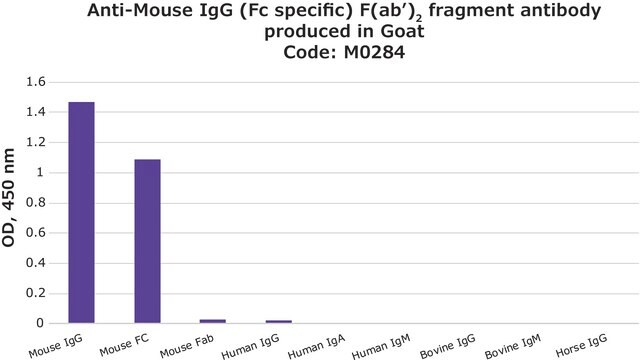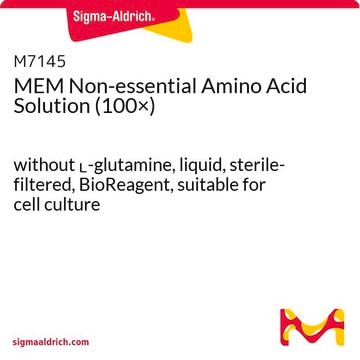M7278
Medio esencial mínimo Eagle
HEPES modification, with Earle′s salts and sodium bicarbonate, without ʟ-glutamine, liquid, sterile-filtered, suitable for cell culture
Sinónimos:
MEM
About This Item
Productos recomendados
product name
Medio esencial mínimo Eagle, HEPES Modification, with Earle′s salts, 25 mM HEPES and sodium bicarbonate, without L-glutamine, liquid, sterile-filtered, suitable for cell culture
Quality Level
sterility
sterile-filtered
form
liquid
technique(s)
cell culture | mammalian: suitable
impurities
endotoxin, tested
pH
>7.2
components
L-glutamine: no
phenol red: yes
HEPES: 25 mM
sodium pyruvate: no
Earle’s salts (5% CO2): yes
NaHCO3: yes
shipped in
ambient
storage temp.
2-8°C
¿Está buscando productos similares? Visita Guía de comparación de productos
General description
Application
Reconstitution
also commonly purchased with this product
supplement
Storage Class
10 - Combustible liquids
wgk_germany
WGK 1
flash_point_f
Not applicable
flash_point_c
Not applicable
Certificados de análisis (COA)
Busque Certificados de análisis (COA) introduciendo el número de lote del producto. Los números de lote se encuentran en la etiqueta del producto después de las palabras «Lot» o «Batch»
¿Ya tiene este producto?
Encuentre la documentación para los productos que ha comprado recientemente en la Biblioteca de documentos.
Los clientes también vieron
Artículos
A large selection of MEM formulations. Minimum Essential Medium (MEM), developed by Harry Eagle, is one of the most widely used of all synthetic cell culture media.
Nuestro equipo de científicos tiene experiencia en todas las áreas de investigación: Ciencias de la vida, Ciencia de los materiales, Síntesis química, Cromatografía, Analítica y muchas otras.
Póngase en contacto con el Servicio técnico





